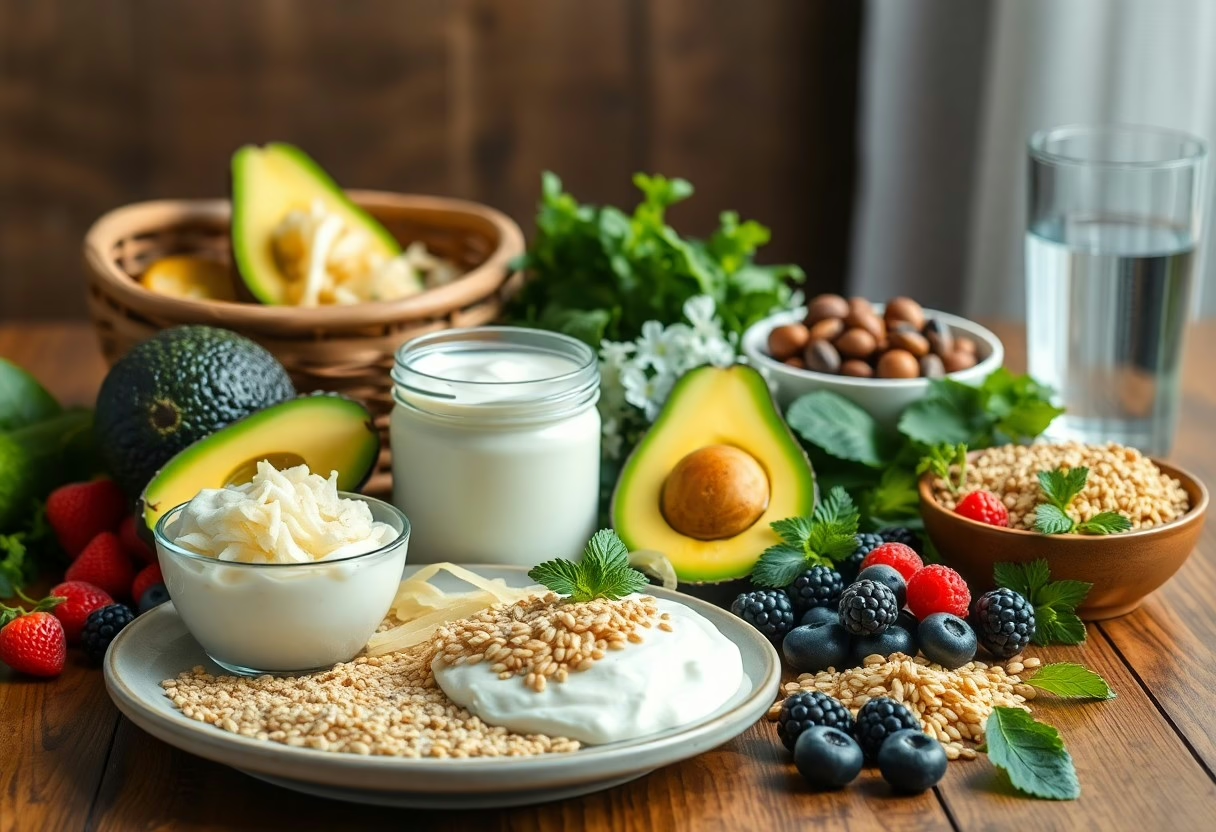Health plays a significant role in your overall well-being, and one of the most vital components is your gut health. If you often experience digestive issues, implementing simple, natural strategies can make a considerable difference. In this blog post, you’ll discover easy steps to enhance your digestion, promoting a healthier gut and a happier you. From dietary adjustments to lifestyle changes, these practical tips will help you nurture your digestive system and support your body’s natural processes.
The Gut-Brain Connection: How Your Mood Affects Digestion
Your mood and mental state play a significant role in digestion, highlighting the intricate link between your gut and brain. Stress, anxiety, and depression can lead to digestive issues such as bloating, gas, and irritable bowel syndrome (IBS). When your mind is troubled, your gut mirrors that discontent, often manifesting in uncomfortable physical symptoms.
Your gut microbiota consists of trillions of microorganisms that help regulate various aspects of digestion and mental health. These bacteria produce neurotransmitters, such as serotonin, which significantly influences your mood and emotional well-being. A diverse gut microbiome can enhance nutrient absorption and reduce inflammation, fostering better digestion and improved mental clarity.
Chronic stress can wreak havoc on your digestive health, leading to various issues from heartburn to constipation. Stress triggers the release of hormones like cortisol, which can alter gut motility and impair the relationship between your brain and gut. Managing stress through techniques like mindfulness, yoga, or exercise is essential for optimal digestive health.
Nutrition for a Happy Gut: Foods That Heal
Your gut thrives on a balanced diet rich in nutrients specifically geared towards enhancing digestive health. Foods packed with fiber, vitamins, and minerals not only support gut flora but also promote digestive efficiency. Incorporating whole grains, colorful fruits and vegetables, and healthy fats creates a robust environment for beneficial bacteria.
Prebiotics are non-digestible fibers that foster the growth of beneficial gut bacteria, whereas probiotics are live microorganisms that provide health benefits when consumed. You can find prebiotics in foods like onions, garlic, and bananas, which nourish the good bacteria in your gut. Probiotics can be sourced from fermented foods like kimchi, yogurt, and kombucha, offering a direct infusion of helpful bacteria.
Including superfoods in your daily meals can significantly impact your gut health. Foods like chia seeds, flaxseeds, and fermented vegetables not only deliver probiotics and prebiotics but also are packed with antioxidants and crucial nutrients. Leafy greens, nuts, and berries also contribute to a nutrient-dense diet that supports a flourishing microbiome.
Incorporating superfoods such as quinoa, kale, and blueberries promotes a diverse gut environment, which is key for digesting various foods efficiently. Quinoa offers a complete protein source along with fiber, while kale is rich in essential vitamins and minerals that aid in digestion.

Simple Lifestyle Changes That Transform Digestion
Small adjustments in your daily routine can have a profound effect on your digestive health. Implementing consistent habits, like drinking enough water, incorporating physical activity, and balancing your meals, can greatly enhance your gut function. Even simple practices like mindful eating and adequate sleep can aid in better digestion.
Sufficient hydration is a key player in digestion. Water aids the breakdown of food and helps absorb vital nutrients, preventing discomfort such as bloating or constipation. Aiming for at least eight 8-ounce glasses daily can significantly improve your digestion and promote regular bowel movements.
Engaging in regular physical activity directly influences your digestive system’s efficiency. Aim for at least 30 minutes of activity most days. Whether it’s walking, cycling, or yoga, movement aids food transit through your intestines and can significantly lessen symptoms of bloating and heartburn. Moreover, exercise helps to manage stress, which can negatively impact digestion.
Mindfulness and Digestion: The Role of Stress Reduction
Stress triggers the release of hormones that can disrupt digestion, leading to issues like bloating and discomfort. Practicing mindfulness helps to minimize stress, creating a more favorable environment for digestion. By staying present and focused during meals, you provide your body with the opportunity to process food efficiently.
Mindful eating involves engaging your senses and being fully present while you eat. Start by eliminating distractions—turn off the TV, put away your phone, and take a moment to appreciate the colors, textures, and aromas of your food. Chew slowly and savor each bite, allowing yourself to truly experience the flavors.
Deep breathing exercises can significantly improve digestion by promoting relaxation and enhancing blood flow to your digestive organs. Incorporating practices like diaphragmatic breathing helps activate the parasympathetic nervous system, which encourages your body to enter a state of rest and digest.
Supplements That Support Digestive Health
Incorporating specific supplements into your routine can significantly enhance your digestive health. Probiotics, which introduce beneficial bacteria to your gut, help improve your microbiome balance and digestion. Digestive enzymes assist in breaking down food, ensuring that you absorb vital nutrients efficiently.
Considering digestive aids might be necessary if you experience frequent bloating, gas, or irregular bowel movements. If dietary changes and lifestyle modifications haven’t provided relief, supplements can offer additional support for your digestive system.
Many natural alternatives can effectively replace over-the-counter remedies for digestive issues. Herbal teas, such as ginger and peppermint, can soothe digestive discomfort, while apple cider vinegar can help stimulate digestive juices. Additionally, fermented foods like kimchi and yogurt provide probiotics that naturally balance your gut flora.
Natural alternatives not only target specific digestive complaints but also promote overall gut health. Ginger has been shown to alleviate nausea, while peppermint can reduce bloating and cramping. Apple cider vinegar, taken before meals, may enhance digestion by increasing stomach acidity.
Conclusion
Prioritizing your gut health can significantly enhance your overall well-being. By incorporating simple dietary changes, staying hydrated, managing stress, and including probiotics in your routine, you can naturally improve digestion. Taking these proactive steps empowers you to foster a healthier gut microbiome and optimize your digestive system. Embrace these methods, and you’ll likely experience not only better digestion but also an improved quality of life.


